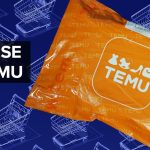In an effort to maintain the decentralized nature of the Ethereum (ETH) network, several prominent liquid staking providers have implemented or are in the process of implementing a self-limit rule.
The rule ensures that these providers will not own more than 22% of the Ethereum staking market, which could help address concerns over the growing centralization of Ethereum staking.
Rocket Pool, StakeWise, Stader Labs, Diva Staking, and Puffer Finance are some of the staking platforms that have already committed to the self-limit, Ethereum core developer Superphiz said in a recent tweet.
“This is how our chain will be successful: Coordination above greed. Cooperation instead of winner-take-all.”
The commitment to maintaining a balanced distribution of validators within the Ethereum network can be considered a positive step toward reducing the risk of centralized control.
The decision to set the self-limit at 22% was based on the requirement that 66% of validators need to agree on the state of Ethereum for finality to be achieved.
Keeping the limit below 22% ensures that at least four major entities must collude to potentially jeopardize the finalization process, which is crucial for maintaining trust and preventing transactions from being altered within the blockchain.
Superphiz initially proposed the idea in May 2022, asking staking pools to prioritize the health of the Ethereum chain over their own profits.
Lido Finance Rejects Self-Limit Rule
The largest Ethereum liquid staking provider, Lido Finance, has decided not to commit to the self-limit rule.
Back in June, the project put forward a proposal to impose a limit on Lido’s maximum stake.
However, less than one half of one percent of the votes cast were in favor of the self-limit rule.
On the other hand, those holding more than 99% of Lido’s governance tokens, LDO, voted for the protocol to not hold back on its growth.
Lido Finance currently dominates the Ethereum staking market, accounting for 32.4% of all staked Ether.
Coinbase, the second-largest staking provider, holds only an 8.7% market share, according to data from Dune Analytics.
While some argue that self-limiting staking providers are not necessary for the alignment of Ethereum, others emphasize the need for a more balanced distribution of validators within the network.
Meanwhile, recent data from Dune Analytics reveals that over 22% of Ethereum’s supply is currently staked on the network, with the total number of Ether just below 26.3 million.
The increase in staked ETH has also led to a rise in the number of validators, which has surpassed 821,600 at the time of writing.
Since late 2020, there has been a steady increase in the volume of ETH staked on the network, despite concerns raised during the Ethereum network’s Shanghai upgrade, which allowed the withdrawal of staked ETH.
Notably, the growth in staked ETH has been substantial since early May, with over 7 million additional ETH being staked and an increase of nearly 230,000 validators.
Read the full article here




